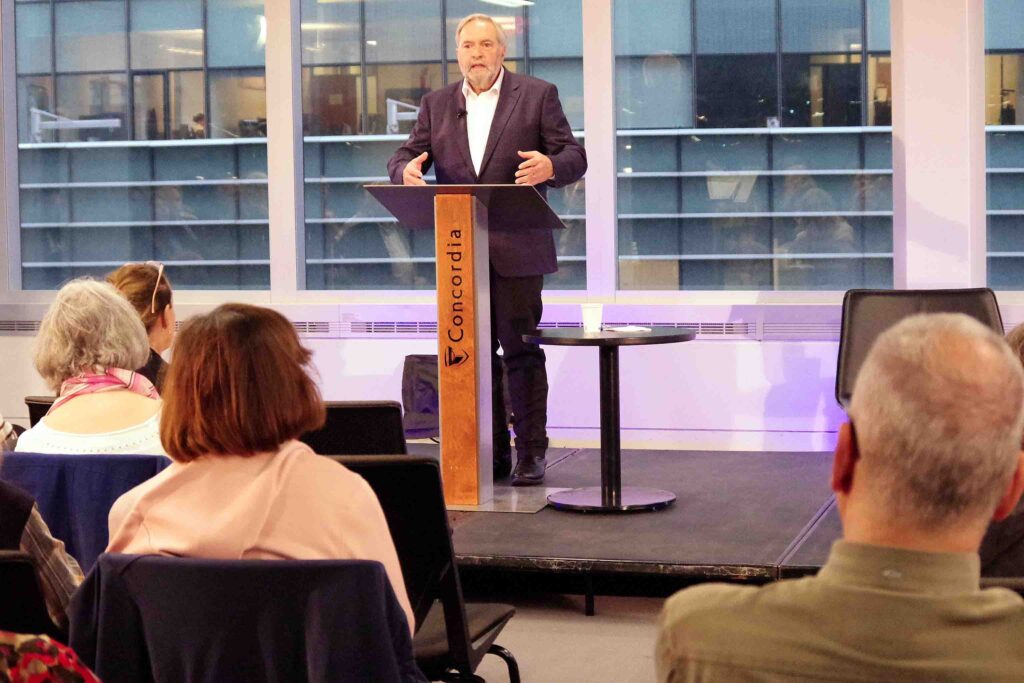‘There’s still a lot that has to be done,’ former Chomedey MNA tells Concordia U audience
Are Canada’s national anthem sung at the beginning of major sports events and the “land acknowledgment” recited at the start of many public gatherings to recognize Canada’s indigenous peoples at odds with one another?
The question was one that former federal NDP leader and Chomedey Liberal MNA Tom Mulcair answered following a talk he gave on legal issues affecting indigenous rights and the environment in Canada on September 25 as a Jurist-in-Residence program guest at Concordia University.
Indigenous issues advocate
Over the course of his political career – especially at the federal level – Mulcair advocated strongly for respect for court rulings and international obligations towards Canada’s indigenous peoples, according to an iPolitics summary of the NDP’s positions under Mulcair’s leadership published in 2013, two years before the 2015 election.

According to CTV News report a few months before the election in which Mulcair and the NDP would suffer a major setback after finishing in a distant third-place, he advocated for a “nation-to-nation” relationship between the First Nations and the federal government.
Hollow statements
But as one attendee at Mulcair’s lecture pointed out, land acknowledgment statements, which typically refer to “unceded” lands or territory originally belonging to First Nations, tend to ring hollow in the context that no further action is being taken to restitute the First Nations.
She also suggested that some of the words in O Canada and in land acknowledgments stand in contrast if not outright contradiction to each other.
She recalled recently being at a recent hockey game in western Canada where some fans from First Nations sitting next to her were appalled that a land acknowledgment was recited just before everyone stood up for the country’s national anthem.

‘It’s not settled,’ said Mulcair
While Mulcair conceded that land acknowledgments have no binding legal effect, he maintained they still have the ability to keep within people’s minds the understanding that “this is not ours as of right – this is something that belonged to people who were there before,” he said.
“Land acknowledgments are a way of putting into the general public’s mind that we should be thinking about this stuff – that it’s not settled and that there’s still a lot that has to be done,” he continued.
“That’s the best way to look at it.” While insisting that land acknowledgments are helpful, Mulcair had nothing more to say in terms of taking the statements a step further.



